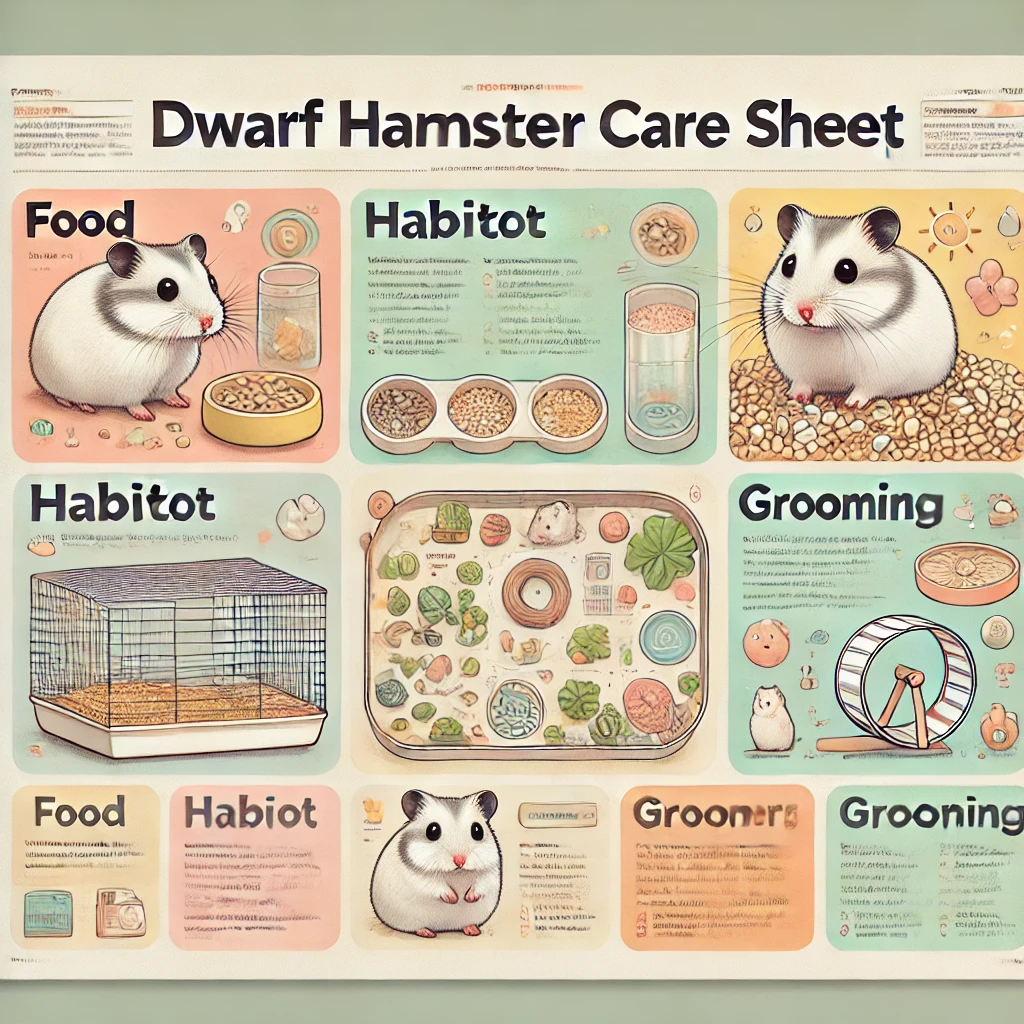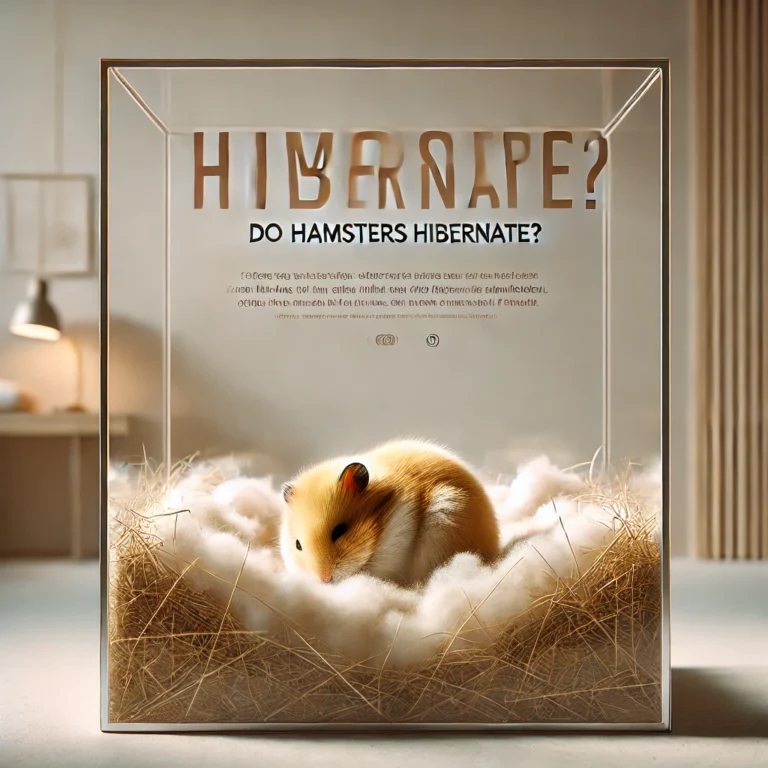dwarf hamster care sheet

Welcome to your all-encompassing guide on dwarf hamster care. Dwarf hamsters, known for their diminutive size and playful demeanor, are beloved pets that captivate the hearts of many. This guide is designed to assist both new and seasoned pet owners in navigating the complexities of dwarf care, from selecting the right breed to maintaining their health and happiness. Through this article, you will gain the necessary knowledge and tips to provide a nurturing environment for your hamster.
Choosing Your Dwarf Hamster
Choosing a dwarf hamster is an exciting first step in your journey as a pet owner. There are several breeds of dwarf, including the Russian, Roborovski, and Chinese dwarf hamster, each with unique characteristics and care needs. When selecting a dwarf hamster, look for signs of good health such as a clean coat, bright eyes, and active behavior. Avoid hamsters that appear lethargic or have discharge from the eyes or nose, as these could be signs of illness. Consider the temperament of the dwarf; some may be more sociable and easier to handle, which is beneficial for families with children or first-time hamster owners.

Setting Up the Perfect Home for Your Dwarf Hamster
Creating an ideal habitat is crucial for the well-being of your hamster. The cage should be spacious enough to allow for exercise and exploration, with a minimum size recommendation of 24 inches by 12 inches. It should include a deep layer of bedding made of paper-based material to absorb moisture and provide comfort. Accessories such as tunnels, nesting boxes, and safe chew toys will enrich your dwarf’s life and cater to natural behaviors of dwarf hamster like gnawing and burrowing. The placement of the cage in your home also matters; it should be in a quiet area away from direct sunlight and drafts to prevent stress and health issues.

Nutrition and Feeding for Your Dwarf Hamster
Feeding your hamster a balanced diet is key to its health. Commercially available dwarf hamster pellets should make up the majority of the diet, as they are formulated to provide all the necessary nutrients. You can supplement this with small amounts of fresh fruits and vegetables, such as carrots and apples, which should be introduced gradually to avoid digestive upset. Protein sources like boiled eggs or mealworms can be offered occasionally. Always ensure fresh, clean water is available through a water bottle with a metal spout, as bowls can easily become contaminated with bedding and food.
Tips
Discover the diverse palette of your furry friend with our guide on what hamsters eat—from nutritious pellets to fresh veggies and occasional protein treats! Unlock the secrets to a balanced hamster diet that ensures vitality and joy in every nibble.
Health and Wellness of Dwarf Hamsters
Dwarf are generally hardy, but like all pets, they can develop health issues. Common ailments include dental problems due to their continuously growing teeth, respiratory infections, and, in some breeds, diabetes. Regular monitoring of their health is crucial, including checking their teeth, weight, and activity levels. Familiarize yourself with the signs of illness, such as lethargy, loss of appetite, or changes in coat appearance, and consult a veterinarian experienced with small rodents at the first sign of trouble.
Breeding Dwarf Hamsters
Breeding dwarf hamsters should be approached with caution and responsibility. It requires understanding the specific needs of the species, such as recognizing the signs of readiness for breeding and ensuring both male and female are healthy. After breeding, special care must be given to the female during her pregnancy, which typically lasts about 18 to 21 days. The newborn pups are delicate and require a warm, undisturbed environment for the first few weeks of life.
Social Behavior and Interaction of Dwarf Hamsters
While dwarfs can be kept alone without significant issues, some, like the Roborovski hamster, may enjoy the company of another of the same species. However, it’s essential to introduce them carefully to avoid aggression. Regular, gentle handling from a young age can help tame dwarfs, making handling more enjoyable. Playtime outside the cage in a secure area can provide enrichment and bonding opportunities.
Conclusion on Dwarf Hamster Care
Caring for a dwarf is a rewarding experience that offers the opportunity to bond with a small but mighty pet. By adhering to the guidelines provided in this detailed care sheet, you ensure your hamster enjoys a comfortable, stimulating, and healthy life. Remember, the key to successful dwarf hamster care is understanding their specific needs and behaviors.
How to Properly Take Care of a Dwarf Hamster?
Proper care for a dwarf hamster involves providing a safe, clean habitat with ample space, nesting materials, and an exercise wheel. Feed a balanced diet of hamster pellets and occasional fresh foods, maintain fresh water daily, and handle your hamster gently to build trust.
What Things Do You Need for a Dwarf Hamster?
To care for a dwarf hamster, you need:
A cage with adequate space and ventilation.
Paper-based bedding.
A food dish and water bottle.
Hamster-safe chew toys and an exercise wheel.
A hideout for sleeping.
Hamster food (pellets and occasional fresh foods).
Do Dwarf Hamsters Eat Every Day?
Yes, dwarf hamsters should eat every day. They typically have a diet consisting of specially formulated hamster pellets, supplemented with small amounts of fresh fruits, vegetables, and proteins like boiled eggs or mealworms.
How Do I Keep My Dwarf Hamster Happy?
Keep your dwarf hamster happy by ensuring it has a clean, enriching environment that includes toys, a wheel for exercise, and occasional treats. Regular, gentle handling can also help your hamster feel more comfortable and bonded to you.
Can a Dwarf Hamster Eat Fruit?
Yes, dwarf hamsters can eat fruit, but it should be given in moderation due to its high sugar content. Suitable fruits include apple, pear, and melon, all offered in small chopped pieces without any seeds.
Do Hamsters Need Salt Licks?
No, hamsters typically do not need salt licks if they are receiving a balanced diet. Excessive salt can be harmful to their health. Always ensure their diet provides adequate nutrition as per vet recommendations.
Do Hamsters Like Boiled Eggs?
Yes, hamsters can enjoy boiled eggs as a source of protein. Offer a small piece of cooked egg white occasionally as a treat, but avoid the yolk if you’re concerned about fat content.
Why Hamsters Don’t Drink Water?
If a hamster is not drinking water, it might be due to the water being dirty or the bottle not functioning correctly. Always ensure the water is fresh and the drinking bottle is accessible and working. If problems persist, consult a vet, as this can be a sign of health issues.
Do Hamsters Need Sugar?
No, hamsters do not need added sugars in their diet. Natural sugars from their food are sufficient. Avoid giving your hamster sugary treats or fruits in high quantities to prevent obesity and diabetes.

